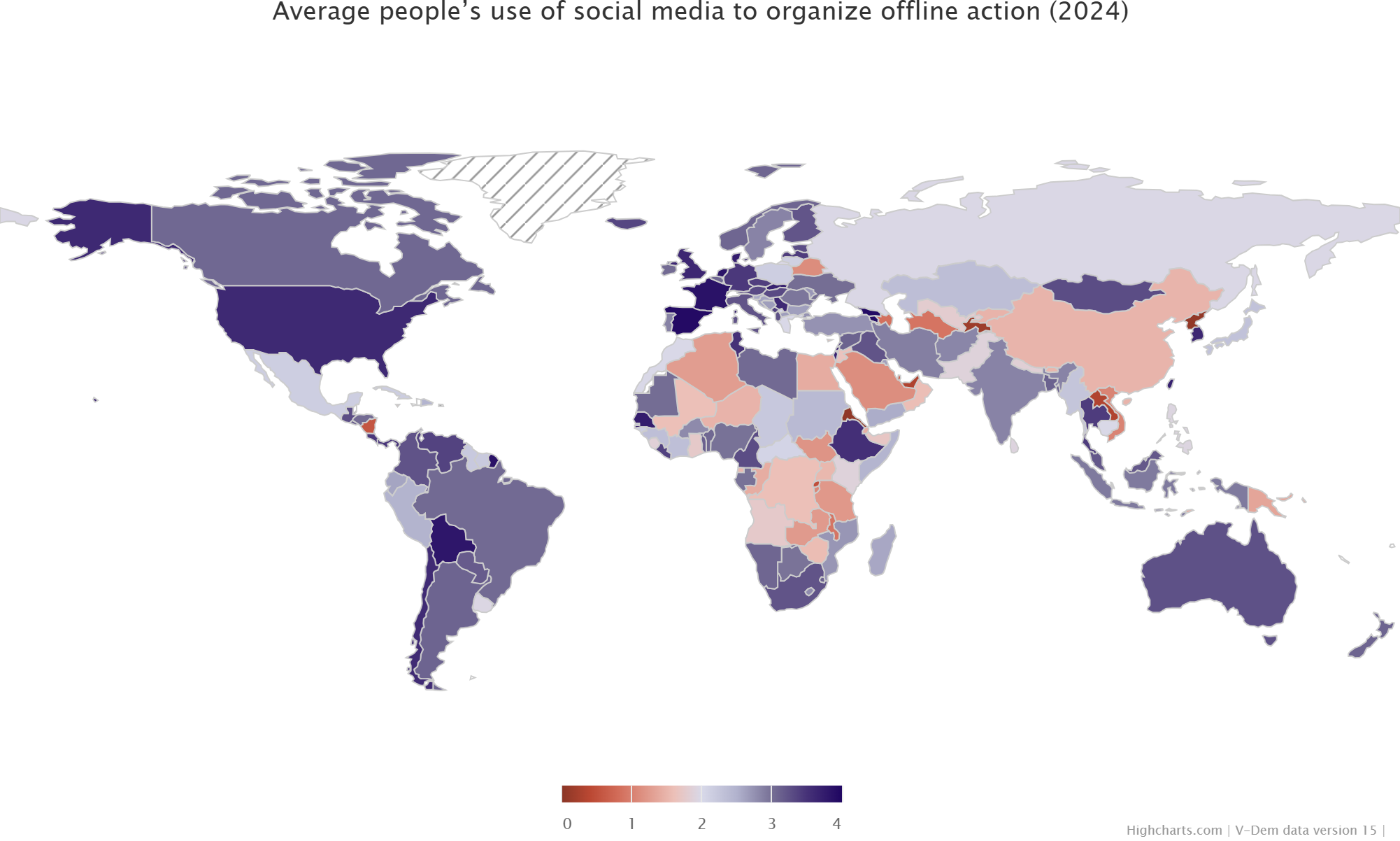Global use of social media for organizing action
By: Fredrik Ertsås
Feb 27, 2026
All over the world, social media changes how citizens interact among themselves and with their political representatives. This week’s graph shows how often average citizens use social media to organize offline political action in 2024. The scale ranges from 0, never or almost never (in deep red), to 4, on a regular basis (in dark blue).
The map shows that using social media for organizing offline action is a common occurrence in most parts of the world. Countries with lower scores, such as Eritrea, Laos, Nicaragua, and Tajikistan, suffer from state interference in public discourse, especially towards political opposition.
However, even in countries where government attempts to hinder online political mobilization, like in Bangladesh, Senegal, and Serbia, political activists have used tools like VPNs to circumvent surveillance and bans.
There is a debate about to what extent online engagement is actually transferred to action in the real world. Is online activism eroding traditional forms of protest or creating a hybrid form of social engagement with activities both online and offline?
The Gen Z Protests, a phenomenon that started in 2024 and increased in 2025, is an example of the latter, with youth being politically active both online and offline. Social movements all over the world are being shaped by modern society and technology.
Note: The current V-Dem dataset (v15) used in this graph covers until the end of 2024.


